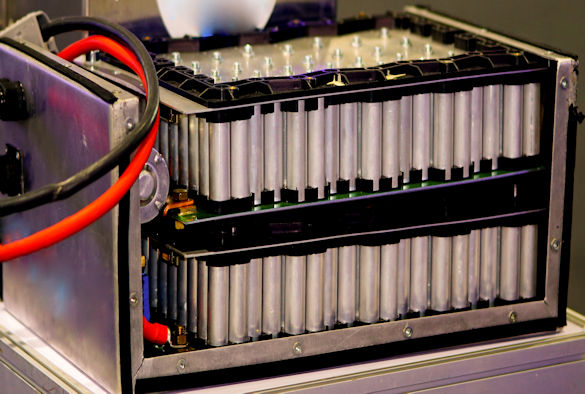
Researchers at the University of Liverpool are part of a major UK research programme that aims to ignite a revolution in UK battery research and accelerate the move to electric vehicles.
The £42 million collaborative research programme, funded through the Faraday Institution, will support four UK-based consortia to conduct application-inspired research aimed at putting the UK at the forefront of battery technology worldwide.
The University is a partner in three of the consortia, reflecting its position as one of the leading UK institutions for interdisciplinary energy storage research, in particular in the field of battery technologies. It will receive approximately £3million in funding through its involvement in the programme which will support a number of post-doctoral research posts.
Researchers from the University’s Stephenson Institute for Renewable Energy (SIRE), Department of Chemistry, School of Engineering and Materials Innovation Factory will contribute to a project exploring how certain stresses, for example high temperatures, can damage electric vehicle batteries.
This project, led by the University of Cambridge, aims to improve optimisation of battery materials and cells to extend battery life, reduce battery costs, and enhance battery safety.
Liverpool’s expertise in lithium batteries will contribute to a project looking at recycling spent lithium batteries. Led by the University of Birmingham, the project will look how to reuse batteries and their materials, make better use of global resources, and ultimately increase the impact of batteries in improving air quality and decarbonisation.
A third project, led by the University of Oxford, aims to demonstrate the feasibility of a solid state battery with performance superior to Li-ion in EV applications. It will consider the barriers that are preventing the progression to market of solid-state batteries.
Professor Laurence Hardwick, Director of SIRE, said: “I am delighted that Liverpool’s unique expertise at the boundaries of chemistry, physics, materials and engineering will contribute to this pioneering research programme which brings together complementary academic and industrial expertise to address the challenges facing battery technologies and put the UK at the forefront of this research.”
Business Minister, Richard Harrington, said: “With 200,000 electric vehicles set to be on UK roads by the end of 2018 and worldwide sales growing by 45 per cent in 2016, investment in car batteries is a massive opportunity for Britain and one that is estimated to be worth £5 billion by 2025.
“Through our flagship Industrial Strategy and its Future of Mobility and Clean Growth Grand Challenges, we are committed to making Britain the ‘go-to’ destination for the development and deployment of this game-changing technology.
“Government investment, through the Faraday Institution, in the projects announced today will deliver valuable research that will help us seize the economic opportunities presented by battery technology and our transition to a low-carbon economy.”
Peter B. Littlewood, from the Faraday Institution, said: “To deliver the much needed improvement in air quality in our cities and achieve our aspiration for cleaner energy targets we need to shift to electric vehicles quickly. These research programmes will help the UK achieve this.”
Professor Philip Nelson, EPSRC’s Chief Executive, said: “The UK has an opportunity to accelerate the development of new products and techniques. EPSRC will be working with the Institution and the academic community to help it succeed and keep the UK a prosperous and productive nation.”
The Faraday Institution is the UK’s independent national battery research institute, and was established as part of the government’s £246 million investment in battery technology through the Industrial Strategy.